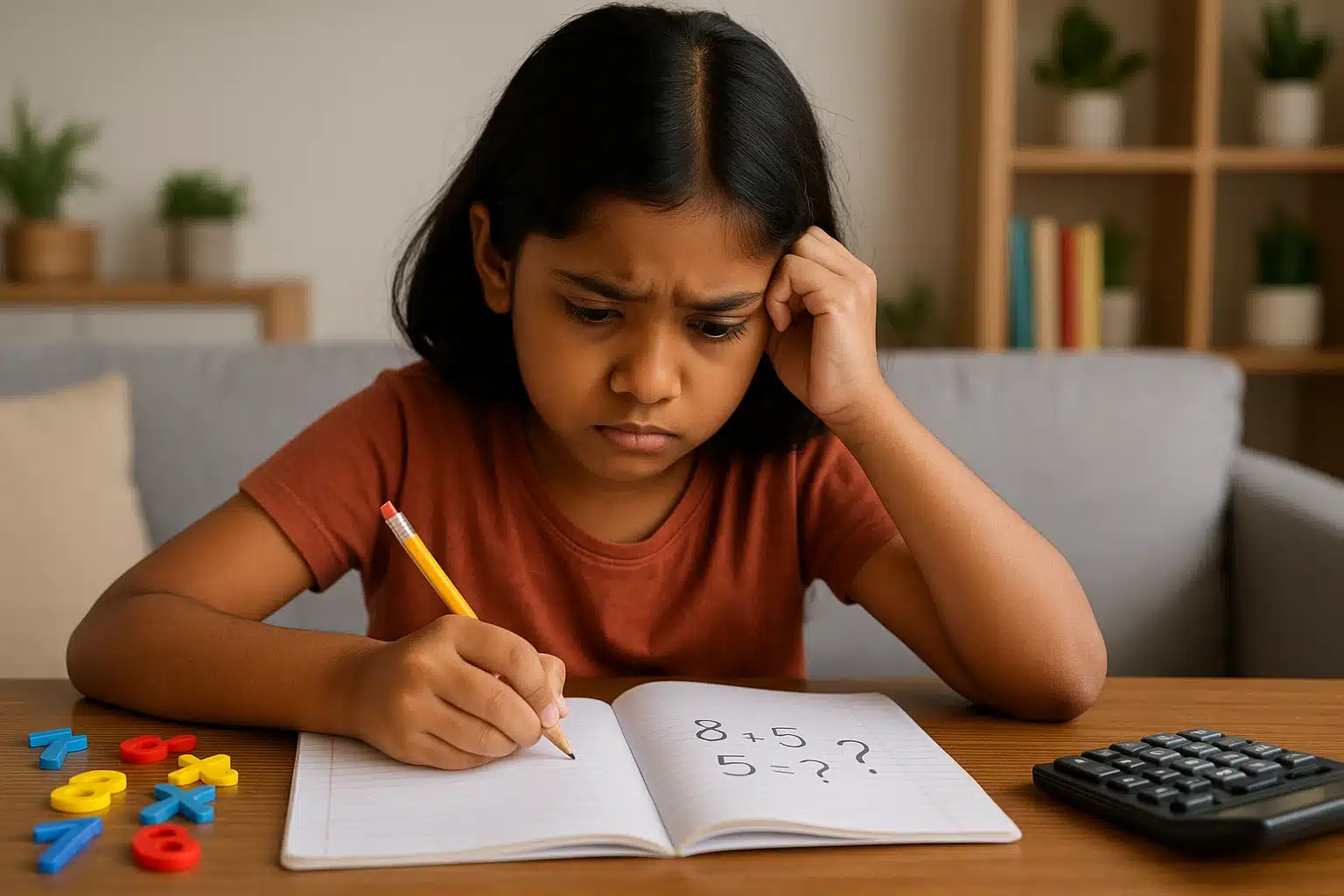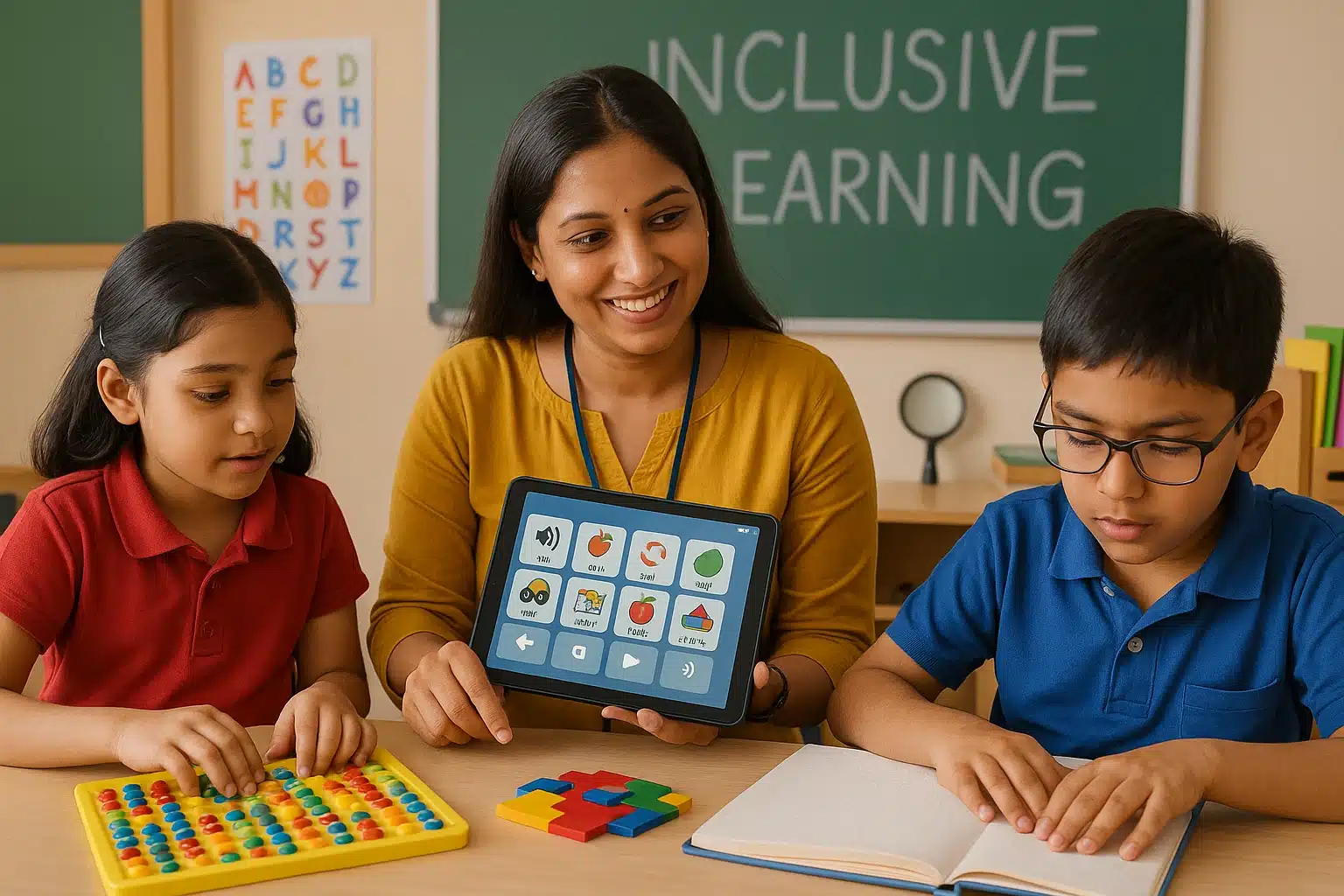
Learning Disorder Definition refers to a condition that affects how a person understands, processes, and responds to information. It can make skills like reading, writing, math, or coordination more difficult than usual. People with learning disorders may have average or above-average intelligence, but still face challenges in school or daily tasks. Understanding the Learning Disorder Definition helps parents, teachers, and caregivers provide the right support for those affected.
Common Learning Disorders Affect a Child’s Ability to Learn
Common Learning Disorders can affect how a child takes in, remembers, understands, or expresses information. These challenges are not due to a lack of intelligence or poor teaching, but rather how the brain processes certain types of information. Identifying these disorders early can help children get the right support and improve their learning experiences.
Here are some of the most common learning disorders that affect a child’s ability to learn:
Mathematical disorder
Dyslexia:
Affects reading, spelling, and writing. Children may struggle to recognise words, match letters with sounds, or understand written sentences.
Dyscalculia:
Students cannot relate to numbers nor process them, as they cannot understand abstract concepts, due to which their competency to calculate suffers greatly.
Dysgraphia:
Impacts handwriting, spelling, and written expression. A child may write slowly, form letters poorly, or find it hard to organise thoughts on paper.
Sound processing difficulties (APD):
The brain capabilities of processing sound signals are affected due to which makes sense of audio sounds a herculean task. Due to APD, the child cannot act on any verbal instructions or displays poor listening skills. This happens more evidently when they are in any noisy environment.
Visual Processing Disorder:
Influences the way the brain processes what kids observe. Kids may confuse letters that look alike, have difficulty reading maps, or have impaired spatial judgment.
Each of those difficulties can hinder learning, but with early intervention and effective teaching strategies, children can overcome many of these and do well in school.
Which Children are at Risk for a Learning Disorder?
Children with certain learning disorders develop due to a mixture of genetic, environmental, and developmental factors. While learning difficulties can affect any kid, some are at higher risk because of specific situations or circumstances.
Listed below are some of the main causes that out children at risk for a learning disorder:
Genetic Reasons:
Any family history of learning disability puts the other siblings at a greater risk of a learning disorder in the coming generations as well.
Premature Birth:
Premature babies may have a higher risk of learning disabilities based on early developmental problems.
Neural disorders:
Children with neural conditions such as ADHD, ASD have poorly developed brain capacities for processing information that can lead to learning difficulties.
Harmful toxin exposure:
- Expectant mothers, when exposed to harmful toxins, especially lead, are at a great risk of passing on neurological disorders.
- Exposure to drugs, alcohol, or toxins during pregnancy can affect brain development and increase the risk of learning issues.
Communication issues or a lack of speech milestones:
Missing important speech milestones can be a sign of delayed speech and language development that can lead to poorly developed learning skills.
Influences of the Environment:
Scanty Diet, imbalanced nutrition, restricted outdoor activities, and stressful home atmospheres can have a major impact on the child’s learning abilities.
Noticing these signs early and acting on them promptly helps teachers, parents and educators to be well-prepared and aware of ways to provide children with appropriate support, helping them reach their true potential.
For more details on the LD Course, Call/WhatsApp at +919321024137 / +919869866277
To download the brochure of the LD Course, Click Here!

Source: futureeducationmagazine
What are the Symptoms of Learning Disorders?
Learning disorders can affect how a child reads, writes, speaks, reasons, or performs math. When the child starts his preschool learning journey, all these skills are essential to build a solid foundation for lifelong learning. But when the child, despite reaching the appropriate age, fails to do basic tasks such as reading, holding a pencil, or even tidying up his surroundings, it can be a warning sign that there might be a learning disorder hampering their functioning and academic progress.
Most prevailing signs noticed in children with learning disorders are listed below:
Common symptoms of learning disorders include:
Cannot read fluently
The child faces severe reading challenges, such as not being able to recognise letters, skipping letters, or poor fluency of reading.
Poor fine motor skills
The child’s finger grip needed for holding a pencil correctly is very poor, due to which their handwriting is illegible, the spacing of letters is improper and putting thoughts on paper is a struggle.
Struggle to perform math operations.
Problems with understanding numbers, value and issues with learning formulas and abstract concepts of money, time, etc.
Hearing issues
Struggle to listen clearly, due to which instructions are not followed correctly, leading to unfinished tasks and activities.
Missing Speech Milestones
Due to the lack of language milestones, the child has a limited vocabulary, and forming sentences can be a big task for them.
Retaining information issues
Retaining information is an issue, due to which applying it in new situations is a struggle.
Concentration issues
The child gets distracted easily as they fail to sustain their concentration ability in tasks that require it for a longer duration.
Coordination Issues
Poor fine motor skills add to Poor Coordination competencies needed for performing tasks like writing, buttoning shirts, or even using scissors.
These symptoms may appear alone or in combination and can differ in severity. Recognising them promptly is the first step in addressing the learning challenges faced by children with special needs.
For more details on the LD Course, Call/WhatsApp at +919321024137 / +919869866277
To download the brochure of the LD Course, Click Here!

Treatment Options for Learning Disorders
Learning Disorders do not have a defined treatment method; it comprises devising suitable strategies and appropriate therapy application that address the real areas of concern, helping children build their learning skills that help them be on par with their classmates, which is a valuable achievement for them.
After Learning Disability Course, Treating learning disorders comprises effective interventions designed by an adept team of professionals, helping children succeed academically and socially.
Some result-guaranteeing options for learning disorders are listed below;
Inclusive Education
Ensuring that every child receives an Individualised Education Program that suits their learning styles and preferences.
Remedial Classes
Providing the child with one-to-one group instruction-based classes, and attending to each child’s queries and doubts.
Therapies
- Language Therapy: Extremely important for language skills.
- Functional Therapy: Helps to polish essential life skills needed for daily functioning.
Academic Counselling
Educates children and enlightens them about their key strengths and their learning preferences, making them self-confident.
Collaborating with Parent and Teacher:
Maintaining a positive working rapport with parents and teachers to support the child’s learning at home.
Including AI-backed teaching tools
Including educational games, academic apps, and the latest techniques of text-to-speech helps to make learning more enjoyable, enabling kids to be more engaged.
Undergoing a Learning Disability Course empowers aspiring candidates to be well-prepared and equipped with result-oriented strategies and specialised teaching techniques that help to address the learning needs of all students in a mainstream classroom. The Learning Disability Program is a valuable tool that guides parents, teachers and educators to provide the child the much-needed academic aid and emotional guidance that helps them thrive academically and socially, enabling them to lead meaningful lives with dignity and independence.
Vidhyanidhi Education Society (Govt. Regd.), a pioneer teacher training Institute offers Learning Disability Course, has built a solid lineage in the field of Special Education by initiating a top-notch LD Course that has transformed and built high-paying careers for thousands of trainees and aspiring teachers.
Join Vidhyanidhi Education Society’s LD course now, shape brighter futures!
For more details on the LD Course, Call/WhatsApp at +919321024137 / +919869866277
To download the brochure of the LD Course, Click Here!
Learning Disorder Definition
FAQs
What is Another Name for a Learning Disorder?
A learning disorder is referred to as "Specific Learning Disability" (SLD) by educators and professionals.
What is the Most Common Learning Disorder?
Dyslexia is the most common learning disorder. It affects reading accuracy, fluency, and comprehension skills in children and adults.
What is the IQ of a Learning Disorder?
Individuals with learning disorders usually have average or above-average IQ; the disorder affects processing, not intelligence. Vidhyanidhi Education Society offers training to support such learners.



